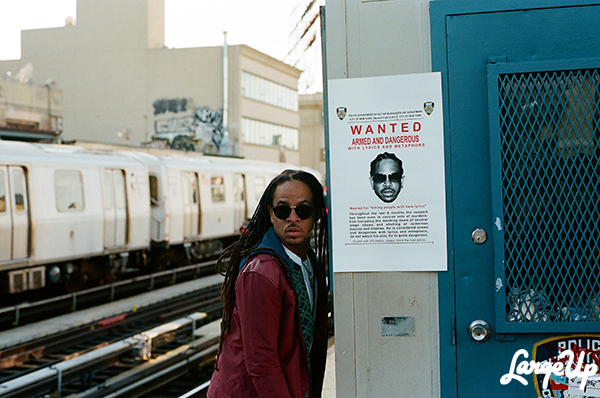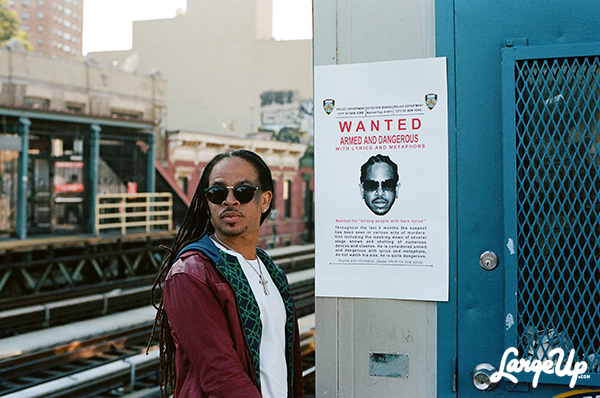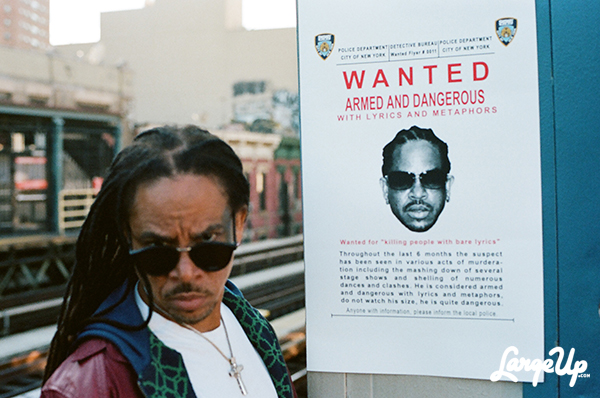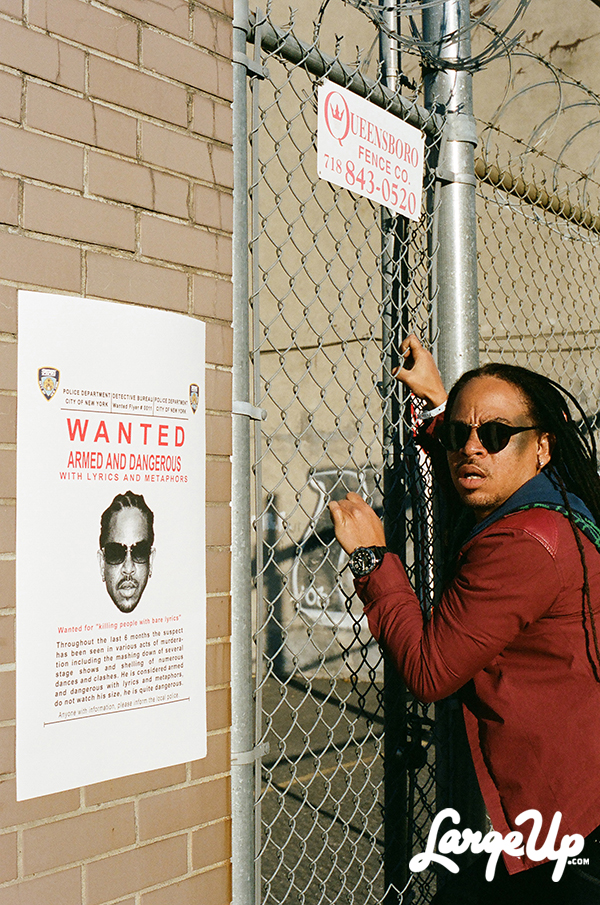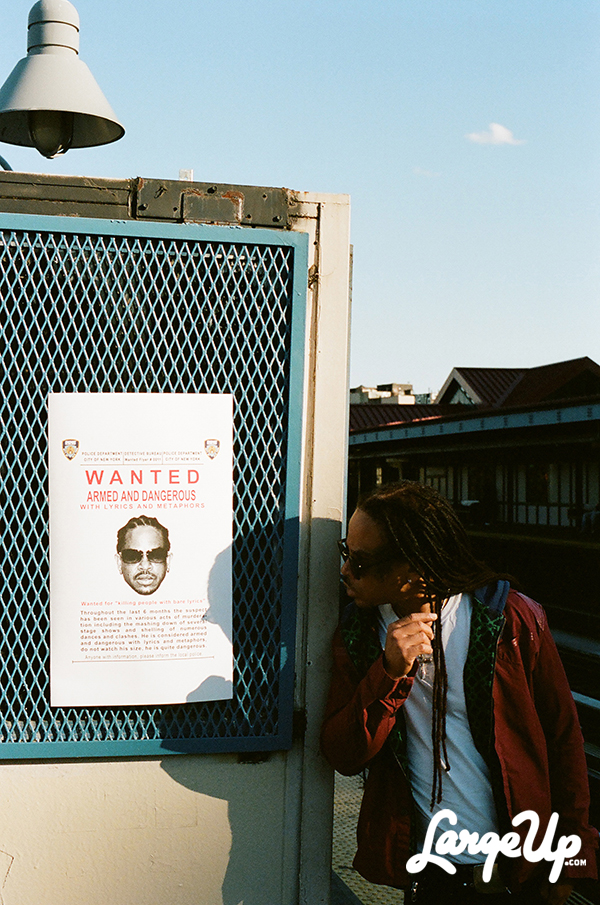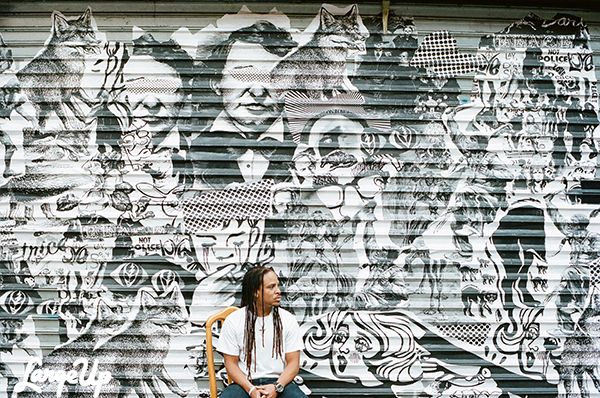LU: How come the other songs that you were doing at the time that were dancehall hits that were with other artists, like say, “Pose Off” didn’t end up on the album?
RF: Good question. I think Red Alert put “Pose Off” and “Let’s Chill” on an Epic album – I remember that they licensed it. I think, and no disrespect to the management, but I had an American manager and I don’t think he understood the history of where I was coming from, and what needed to be done because really, and truly, those songs needed to be put on the album, but we didn’t do it.
LU: Were you consciously doing combination tunes since you had so much success with songs like “Down In Jamaica” and “Pose Off.”
RF: I like combinations songs for the fact that, [people] who don’t understand patois, could sing along with [what] the vocalist is singing. They can catch the chorus, and figure the rest out later. Me singing a record in pure patois, sometimes to the foreigners, it’s like listening to a French song, and you don’t speak French, or listening to Spanish stations. I was well aware of that, and I like melodies. When you have a singer doing the hook and you have an nice little melody, it gives you something nice to work around.
LU: There was a phenomenon in the ’90s, where you had all these Jamaican dancehall artists getting signed to major record labels, and the labels not really understanding the market. Almost everybody, with the exception of Shaggy and Shabba, did one album, it didn’t sell much, and that was the end of the deal. We could list dozens of artists, and you were one. Did that slow down your ability to make music?
RF: I wouldn’t say slow down, but it was a major transition I had to make because, before I got signed, I was just used to making show money. When I got signed— I think I got signed at the time for $150,000 with a $10,000 bonus, with a $50,000 publishing deal from EMI— I have all this money overnight. After the deal, I was trying to figure out where do you go from that point. There’s a lot of lessons I learned because I was like a baby when I got signed to Elektra. I had no knowledge of anything. I don’t know what my manager’s supposed to be doing. Once Elektra dropped me, I started to try to put things into perspective and order, and I ended up doing an album spur of the moment with Philip Smart, Face the Fox, for VP Records.
I was trying to figure myself out as a person. It never had anything to do with the music at that point. I had a lot of thing to figure out as far as my broughtupsy, my mother leaving when I was three, my father committing suicide, all these dysfunctions. I wanted to get my mind right more than anything else. I wasn’t really thinking I need to have a hot song right now, killing the place right now, I wanted to fix myself, give myself therapy, figure myself out, so I could have a healthy state of mind and make sense of what I was doing. Through that process, I ended up touring with Maxi Priest. I did like a 10-year tour with Maxi Priest, and that’s what took me away from doing a lot of recording. I was just on the road, and I liked being on the road. I was away from all the drama in Brooklyn, I was away from everything. I just felt at peace when I was touring, I wasn’t thinking like, Oh shit I don’t even got a recording done.
LU: Around then, your friend Shaggy was becoming this major artist. Were you around for that?
RF: Shaggy and I weren’t talking for probably 10 years. He was the one who told Maxi Priest to bring me on the road to add something to his show and, even when he did that, we weren’t even talking. We just had a lot of falling outs and it became really ugly at one point. When he did Hot Shot and sold like 12 million, I had to live that everyday in the streets of Brooklyn. Wherever I go, someone is coming to me like, Yo! Bwoy teef yuh style! ‘Im teef yuh diss, ‘im teef yuh voice! I gotta live that every single day. I had to keep telling people listen, he didn’t steal anything, we used to hang together, I brought a lot of things to the table, he learned a lot from me, and he’s doing well, Be happy for him.
Listening to that on a daily basis, when you’re going through struggles, you can eventually start buying into it. I wouldn’t say I bought into it, but there were moments where Shaggy might have done something that pissed me off that made me lean over to whatever negativity they were saying in the streets. It became really sticky and ugly, and I felt I needed to kill that drama so I called him up, had a long, long talk with him, and he invited me to his studio and we started chillin’, and slowly built back our relationship to the point where we’re at right now.
LU: Good. It seems like you are working together a lot now.
RF: Yeah, definitely. He came up with the Ranch label lately and I do a lot of work over there. That’s the studio I use to do all my tracks right now.

